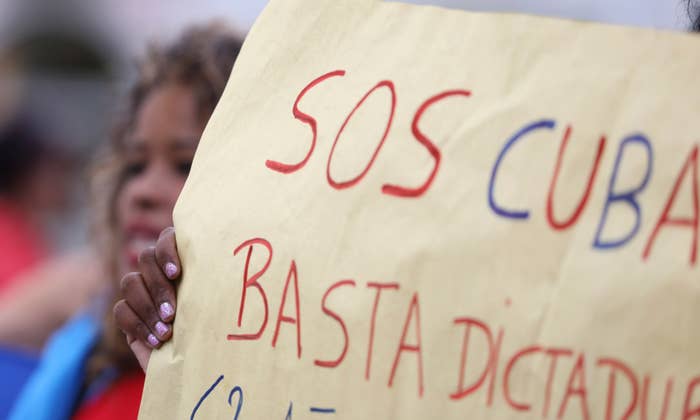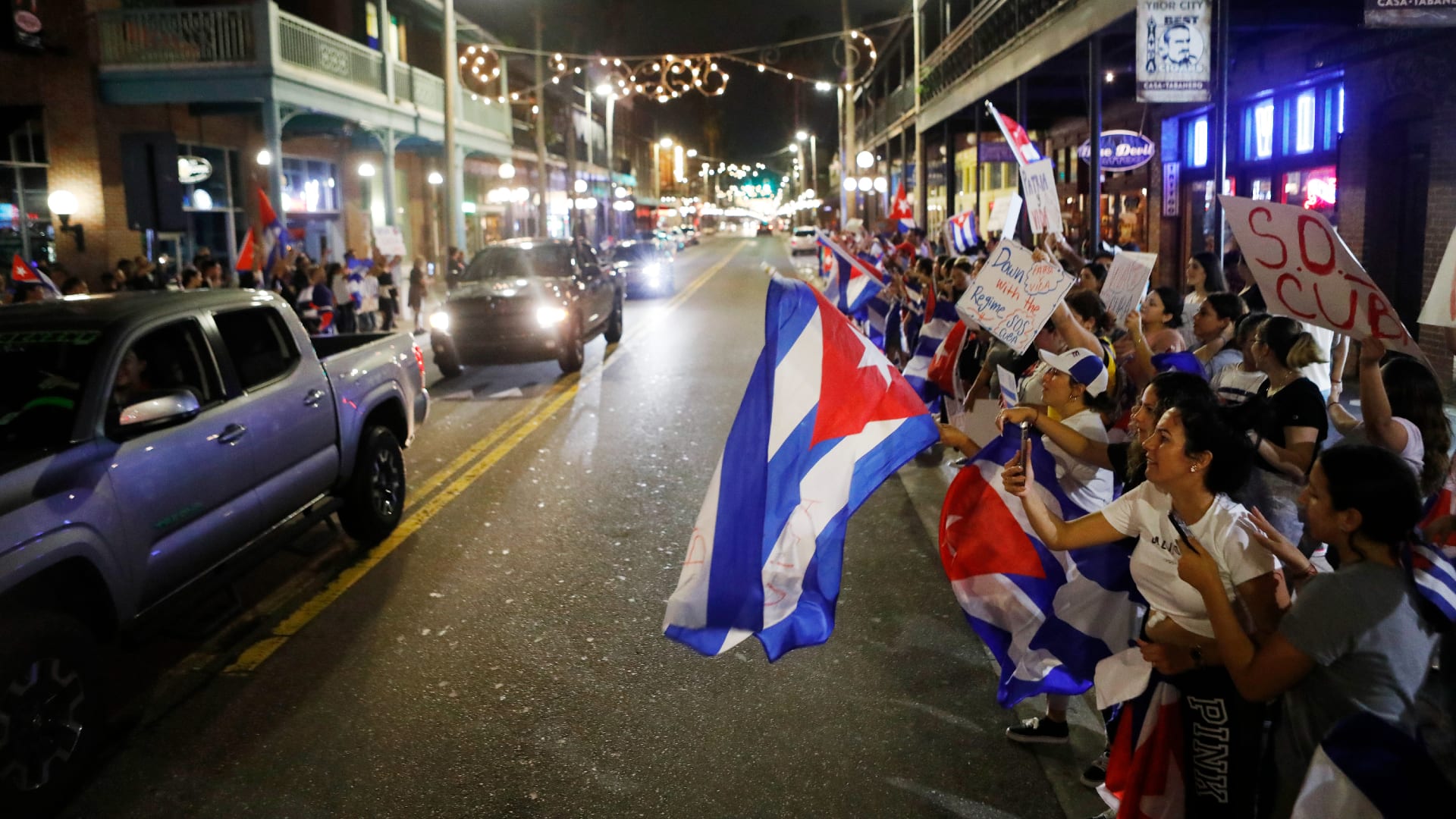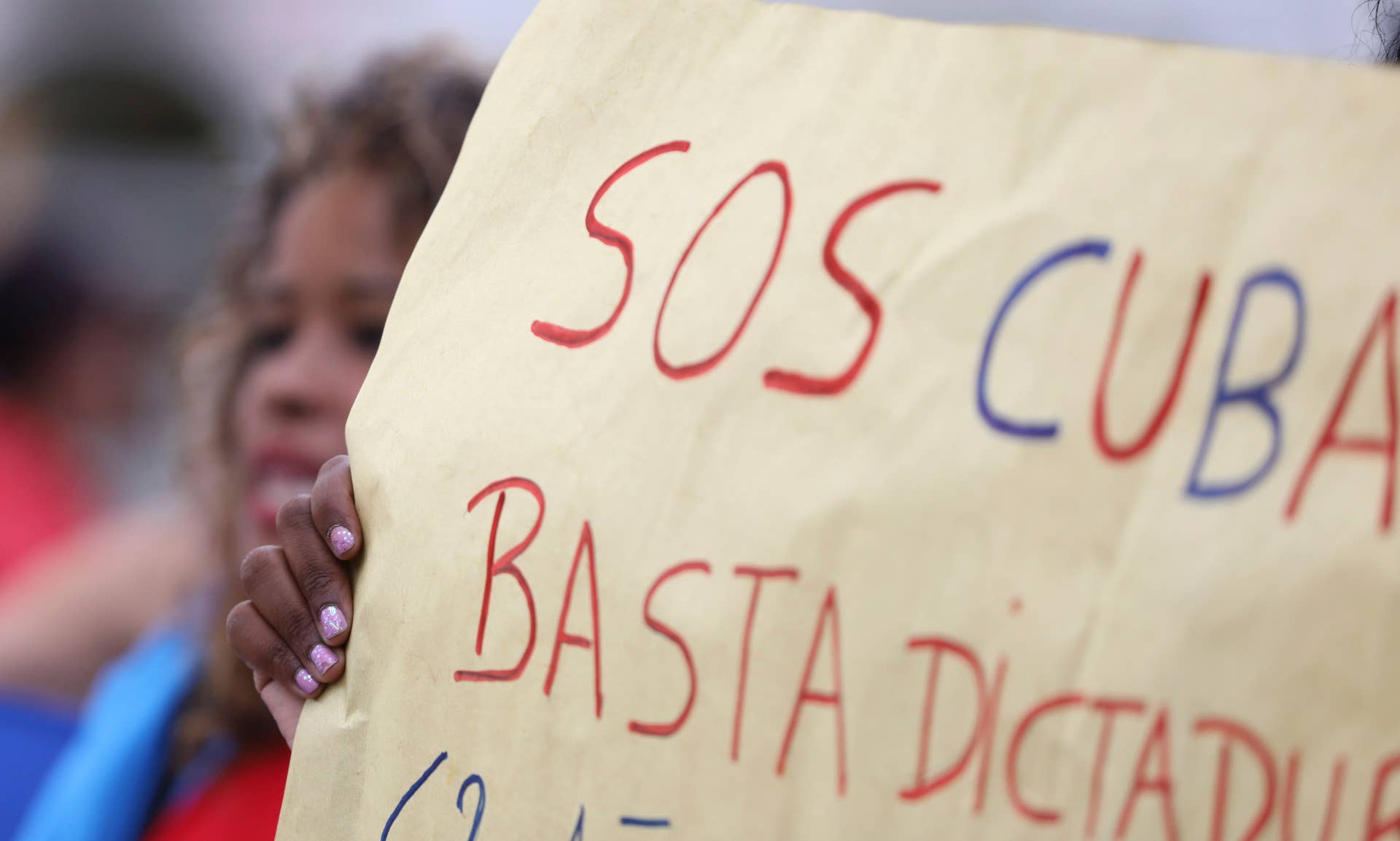
The effects of U.S. sanctions, as well as a recent spike in COVID-19 cases, are among the factors converging to inspire historic protests in Cuba. But there’s more to the story.
Just this week, the demonstrations made their way into South Florida, successfully shutting down a portion of a Miami-Dade highway as a show of solidarity for those protesting in Cuba. Footage from the demonstration, which resulted in traffic being blocked for roughly an hour, showed protesters waving the Cuban flag and joining together in chants of support.
The latest protests have been widely cited as the biggest and most impactful for the region in decades, with many joining the #SOSCuba hashtag to show their support.
Amid continuing developments, including recent comments from both Cuban President Miguel Díaz-Canel and U.S. President Joe Biden, we’ve put together a breakdown on the 2021 protests touching on why they’re happening now and what advocates are hoping to see happen soon.
Earlier this month, protests on the island were seen at levels deemed by many to be historic, with thousands of demonstrators taking to the streets to draw attention to food shortages and financial problems.
On Wednesday, per the Associated Press, Cuban officials confirmed that one person had died during demonstrations in the Arroyo Naranjo municipality in Havana. Protests also occurred in Spain, Mexico, the U.S., and elsewhere. In some instances, protesters were met with violence from police.
As widely noted, while 2020 did see several examples of similar demonstrations, none have been as massive as those that occurred this July since at least 1994.
At the moment, Cuba is simultaneously facing a worrisome surge in COVID-19 cases while also grappling with an economic crisis many have argued is a direct result of controversial sanctions from the Trump era.
Pandemic safety guidelines were tightened earlier this month in an effort to battle against rising numbers amid concerns over the Delta variant. At the time, the Miami Herald’s Adriana Brasileiro reported, a vaccine campaign was also struggling “to gain traction.”
Meanwhile, Cuban President Miguel Díaz-Canel—who also serves as the First Secretary of the Communist Party of Cuba—admitted the government deserved a small portion of the blame for the region’s current situation.
“We have to gain experience from the disturbances,” he said in a televised address on Wednesday. “We also have to carry out a critical analysis of our problems in order to act and overcome, and avoid their repetition.” In the same address, Díaz-Canel criticized the U.S. for its “cruel” policies and referred to some protesters as “delinquents.”
Díaz-Canel, notably, was preceded in his Republic of Cuba role by brothers Raúl Castro and Fidel Castro. Some protesters have called for Díaz-Canel to step down. As Human Rights Watch points out, Díaz-Canel previously advised government supporters and security officers to meet the protests with violence.
The president, as is well-documented, has generally attempted to posit the protests as part of a larger U.S. effort to dismantle the Communist party.
For many protesters, “Patria y Vida”—or “Fatherland and Life”—has become an oft-repeated solidarity phrase. The phrase is synonymous with an anthem of the same name that’s since amassed millions of views on YouTube, complete with a video featuring work by rapper Maykel Castillo and performance artist Luis Manuel Otero.
Most recently, President Joe Biden said his administration stands “with the Cuban people” and urged leaders to listen to their calls.
“We stand with the Cuban people and their clarion call for freedom and relief from the tragic grip of the pandemic, and from the decades of repression and economic suffering to which they have been subjected by Cuba’s authoritarian regime,” Biden said in a White House statement. “The Cuban people are bravely asserting fundamental and universal rights. Those rights, including the right of peaceful protest and the right to freely determine their own future, must be respected.”
In June, 184 countries voted in favor of a United Nations resolution demanding the end of what they described as “the U.S. economic blockade on Cuba,” marking the 29th year in a row. Both the U.S. and Israel voted against the resolution.
Additional U.S. protests in solidarity have taken place in Miami, Orlando, New York City, and elsewhere. Meanwhile, criticism remains ongoing in connection with the government’s response to the protests in Cuba, which has reportedly included restricting social media access.
Kenneth Roth—executive director at Human Rights Watch—said Wednesday this marked the sign of an “unpopular, out-of-touch government.” Others have also called attention to detention methods and related issues, including those used during an on-air incident involving YouTuber Dina Stars.
A statement in response to the protests in Cuba shared to the verified Black Lives Matter Twitter account received criticism from Republicans earlier this week. In the statement, @blklivesmatter said it condemned the U.S. government’s “inhumane treatment of Cubans” and called on U.S. leadership to end the economic embargo.
Elsewhere in the U.S., Democrats—particularly those in Florida—are urging Biden to not waste what they believe is a “golden opportunity.” In short, as touched on in this Marc Caputo piece at Politico, Biden has shown promise with his recent statements but many fear he will approach any future Cuba developments with too much caution.






